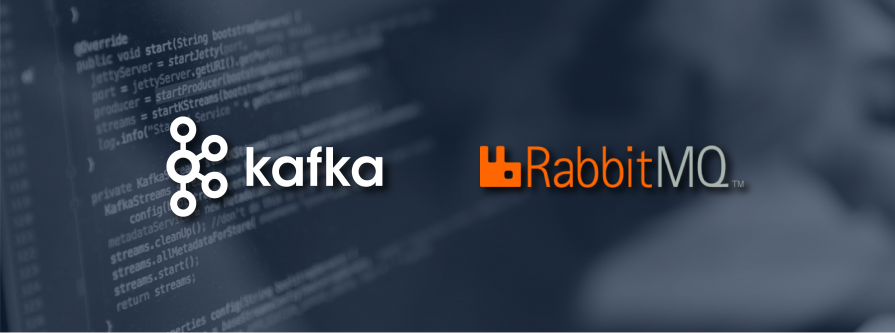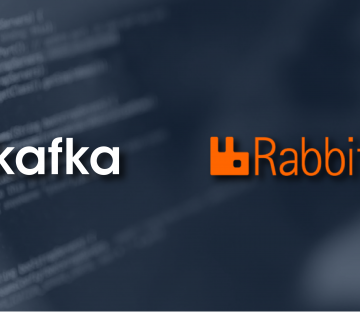10 items found: Search results for "programming languages" in all categories x


April 29, 2016 | Software Consultancy
In this post, I’ll demonstrate an alternative API which uses some of the advanced language features of the new Kotlin language from Jetbrains. As Kotlin is a JVM-based language, it interoperates seamlessly with Concursus’s Java 8 classes; however, it also offers powerful ways to extend their functionality.


July 20, 2021 | Blog, Data Engineering, Kafka
Message and event-driven systems provide an array of benefits to organisations of all shapes and sizes. At their core, they help decouple producers and consumers so that each can work at their own pace without having to wait for the other – asynchronous processing at its best.
In fact, such systems enable a whole range of messaging patterns, offering varying levels of guarantees surrounding the processing and consumption options for clients. Take for example the publish/subscribe pattern, which enables one message to be broadcast and consumed by multiple consumers; or the competing consumer pattern, which enables a message to be processed once but with multiple concurrent consumers vying for the honour—essentially providing a way to distribute the load. The manner in which these patterns are actually realised however, depends a lot on the technology used, as each has its own approach and unique tradeoffs.
In this article we will explore how this all applies to RabbitMQ and Apache Kafka, and how these two technologies differ, specifically from a message consumer’s perspective.


January 11, 2018 | Data Engineering
The last few years have seen Python emerge as a lingua franca for data scientists. Alongside Python we have also witnessed the rise of Jupyter Notebooks, which are now considered a de facto data science productivity tool, especially in the Python community. Jupyter Notebooks started as a university side-project known as iPython in circa 2001 at UC Berkeley.


August 8, 2017 | Cassandra
Recently, the sad news has emerged that Basho, which developed the Riak distributed database, has gone into receivership. This would appear to present a problem for those who have adopted the commercial version of the Riak database (Riak KV) supported by Basho.
This blog is written exclusively by the OpenCredo team. We do not accept external contributions.


October 13, 2016 | Data Analysis
In Lisp, you don’t just write your program down toward the language, you also build the language up toward your program. As you’re writing a program you may think “I wish Lisp had such-and-such an operator.” So you go and write it. Afterward you realize that using the new operator would simplify the design of another part of the program, and so on. Language and program evolve together…In the end your program will look as if the language had been designed for it. And when language and program fit one another well, you end up with code which is clear, small, and efficient – Paul Graham, Programming Bottom-Up


March 20, 2017 | DevOps
DevOps has swept the tech landscape. Now, many are discovering the benefits of programmable infrastructure. I have been lucky to work on many projects where we’ve taken advantage of tools such as Terraform, Ansible, or Chef.


March 7, 2017 | Data Analysis, GCP
Google has recently made its internal Spanner database available to the wider public, as a hosted solution on Google Cloud. This is a distributed relational/transactional database used inside for various Google projects (including F1, the advertising backend), promising high throughput, low latency and 99.999% availability. As such it is an interesting alternative to many open source or other hosted solutions. This whitepaper gives a good theoretical introduction into Spanner.


January 23, 2017 | Data Analysis
More often than not, people who write Go have some sort of opinion on its error handling model. Depending on your experience with other languages, you may be used to different approaches. That’s why I’ve decided to write this article, as despite being relatively opinionated, I think drawing on my experiences can be useful in the debate. The main issues I wanted to cover are that it is difficult to force good error handling practice, that errors don’t have stack traces, and that error handling itself is too verbose.


March 3, 2016 | Software Consultancy
JetBrains (the people behind IntelliJ IDEA) have recently announced the first RC for version 1.0 of Kotlin, a new programming language for the JVM. I say ‘new’, but Kotlin has been in the making for a few years now, and has been used by JetBrains to develop several of their products, including Intellij IDEA. The company open-sourced Kotlin in 2011, and have worked with the community since then to make the language what it is today.


October 18, 2015 | Cloud, DevOps
Last week Steve Poole and I were once again back at the always informative JAX London conference talking about DevOps and the Cloud. This presentation built upon our previous DevOps talk that was presented last year, and focused on the experiences that Steve and I had encountered over the last year (the slides for our 2014 “Moving to a DevOps” mode talk can be found on SlideShare, and the video on Parleys).